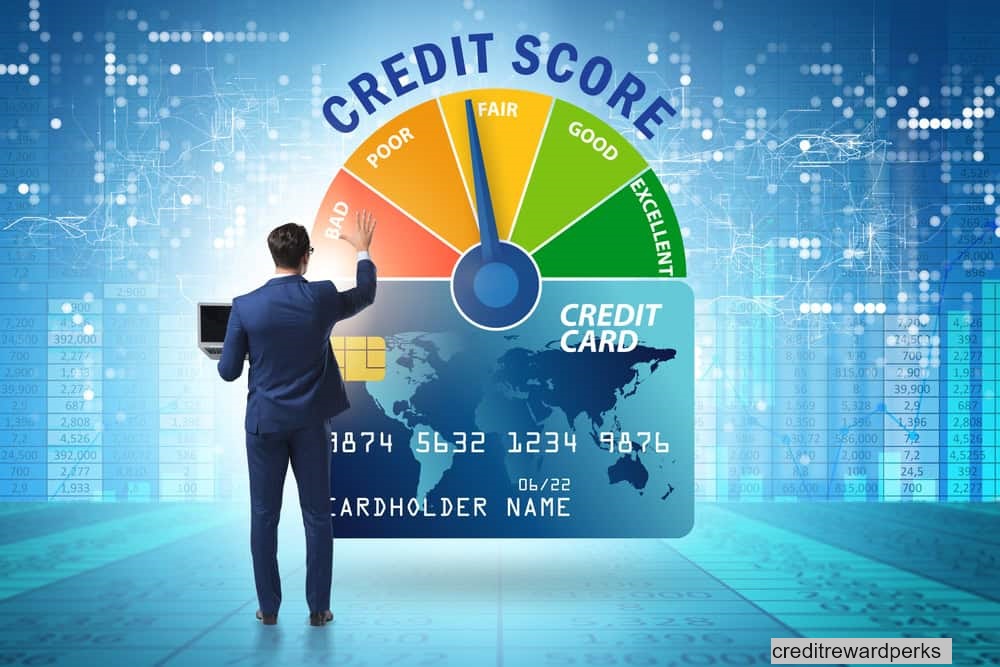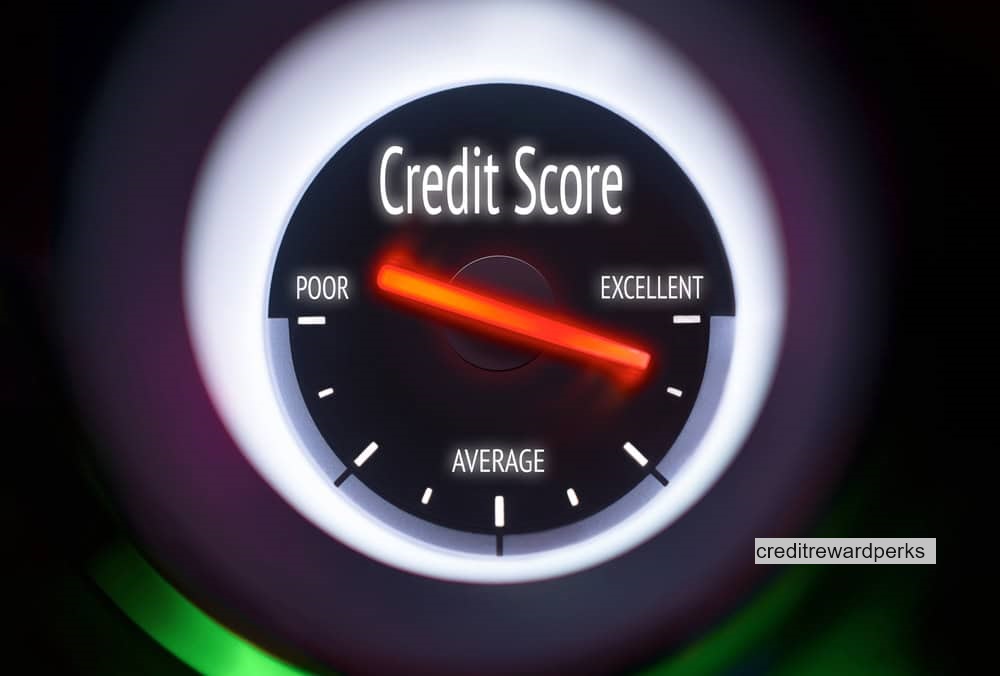When I first started building my credit, I didn’t know much about the credit score system, but I quickly learned that it was crucial to have a good credit score to take out loans, rent an apartment, or even secure a job.
After years of hard work and dedication, I finally achieved an 800 credit score. In this article, I’ll share my journey and offer tips on how you can also improve your credit score.
Key Takeaways
- Maintaining a good payment history and credit utilization ratio are key factors in achieving an 800 credit score.
- Consistency and patience are crucial when building and maintaining a good credit score.
Understanding Credit Score

When I first started working on improving my credit score, I knew that I needed to understand what it was and how it was calculated. Your credit score is a number that represents your creditworthiness and is used by lenders to determine whether or not to extend credit to you.
There are several factors that go into calculating your credit score, including your payment history, the amount of debt you owe, the length of your credit history, and the types of credit you have. It’s important to note that not all credit scores are created equal, and different lenders may use different scoring models.
One of the most widely used credit scoring models is the FICO score, which ranges from 300 to 850. A score of 800 or above is generally considered to be excellent, while a score below 600 may make it difficult to obtain credit.
To improve your credit score, it’s important to focus on paying your bills on time, keeping your credit utilization low, and maintaining a mix of credit types. It’s also a good idea to regularly check your credit report for errors and to dispute any inaccuracies.

Importance of 800 Credit Score
Having a good credit score is important for many reasons. It can affect your ability to get approved for loans, credit cards, and even apartments. But having a credit score of 800 or higher can open up even more opportunities and benefits.
For me, having an 800 credit score has allowed me to qualify for the best interest rates and terms on loans and credit cards. This has saved me thousands of dollars over the years in interest payments. It has also given me peace of mind knowing that I have a strong financial foundation.
In addition to the financial benefits, having an 800 credit score can also give you a sense of pride and accomplishment. It shows that you have been responsible with your credit and have a history of making timely payments.

Starting on the Right Foot: Building Credit Early
When I was just starting out in the world of credit, I knew that building a solid foundation was key to achieving a high credit score. Here are some of the steps I took to start on the right foot:
- Getting a credit card: I applied for a credit card with a low credit limit and made sure to pay off the balance in full every month. This helped me establish a positive credit history and showed lenders that I was responsible with credit.
- Becoming an authorized user: I became an authorized user on my parents’ credit card and made sure to use it responsibly. This allowed me to piggyback off their positive credit history and gave me a boost in my own credit score.
- Paying bills on time: I made sure to pay all of my bills on time, including rent, utilities, and student loans. Late payments can have a negative impact on your credit score, so it’s important to stay on top of them.
- Keeping credit utilization low: I kept my credit utilization (the amount of credit I was using compared to my credit limit) low by only using my credit card for small purchases and paying it off in full every month. This showed lenders that I was responsible with credit and helped me maintain a good credit score.
By starting on the right foot and building a solid foundation for my credit, I was able to achieve a high credit score and enjoy the benefits that come with it. I suggest getting any card you can even if it is secured, then pay on time, and as your score improves you can get one of the hard to get cards.

I am proud to say that I have achieved an 800 credit score. As someone who has always been financially responsible, I have worked hard to maintain a good credit score, and reaching the highest possible score has been a personal goal of mine for years. I recently got a car loan for 2%.

Staying on Top of Payments
One of the most important factors in achieving and maintaining a high credit score is staying on top of payments. Late payments, even just a few days overdue, can significantly lower your score and make it much harder to recover.
To ensure that I never miss a payment, I set up automatic payments for all of my bills. This way, the money is automatically deducted from my account each month and I don’t have to worry about forgetting to pay a bill on time.
I also keep track of my payment due dates using a calendar or reminder app on my phone. This helps me stay organized and ensures that I never miss a payment.
If I ever do find myself in a situation where I’m unable to make a payment on time, I reach out to the creditor as soon as possible to explain the situation and work out a payment plan. This not only helps me avoid late fees and penalties, but it also shows the creditor that I’m responsible and willing to work with them to resolve any issues.

Credit Utilization: The Magic Ratio
Maintaining a low credit utilization ratio is one of the most effective ways to boost your credit score. Credit utilization is the amount of credit you are using compared to the amount of credit you have available. For example, if you have a credit card with a $10,000 limit and you have a balance of $2,000, your credit utilization ratio is 20%.
Ideally, you should aim to keep your credit utilization ratio below 30%. This means that if you have a total credit limit of $20,000, you should try to keep your balance below $6,000. If you can keep your credit utilization ratio below 10%, even better. I sometimes buy expensive trip or computer, but then pay it off within 3 months. I call this exercising.
List of high demand low approval cards.

To maintain a low credit utilization ratio, you can take a few steps. First, you can pay off your credit card balances in full each month. This will ensure that you are not carrying a balance and will keep your credit utilization ratio low.
Another way to keep your credit utilization ratio low is to ask for a credit limit increase. This will increase the amount of credit you have available, which will lower your credit utilization ratio.

The Role of Credit History Length
One important factor that affects your credit score is the length of your credit history. In my case, I’ve had credit cards and loans for over a decade, which has helped to boost my credit score.
When lenders review your credit report, they want to see a long history of responsible credit use. This shows that you are a reliable borrower who is likely to pay back your debts on time. If you have a short credit history, lenders may be hesitant to extend credit to you because they don’t have enough information to assess your risk.

To build a longer credit history, you can start by opening a credit card account and using it responsibly. Make sure to pay your bills on time and keep your balances low. Over time, your credit history will grow longer, which can help to improve your credit score.
It’s worth noting that closing old credit accounts can actually hurt your credit score. This is because it shortens your credit history and reduces the amount of available credit you have. Instead of closing old accounts, it’s better to keep them open and use them occasionally to maintain your credit history.

Importance of Credit Mix
When it comes to building a strong credit score, having a diverse credit mix is crucial. This means having a blend of different types of credit, such as credit cards, installment loans, and mortgages.
Having a mix of credit shows that I am able to handle different types of debt responsibly. Lenders want to see that I can manage different types of credit and make payments on time.
One way to diversify my credit mix is to consider taking out an installment loan. This type of loan, such as a car loan or a personal loan, requires regular payments over a set period of time. Having an installment loan can help improve my credit mix and show lenders that I am capable of handling this type of debt.
Another way to diversify my credit mix is to use a credit card responsibly. By making regular payments on time and keeping my credit utilization low, I can show lenders that I am responsible with credit card debt.

New Credit: A Double-Edged Sword
When I first started working on improving my credit score, I thought getting more credit would be the key to success. However, I quickly realized that new credit can be a double-edged sword.
On one hand, opening a new credit account can increase your available credit and lower your credit utilization ratio. This can have a positive impact on your credit score, especially if you have a low credit limit on your existing accounts.
On the other hand, applying for new credit can also result in a hard inquiry on your credit report. This can temporarily lower your credit score and stay on your report for up to two years. Additionally, if you are not able to manage your new credit responsibly, it can have a negative impact on your credit score.
To avoid the negative impact of new credit, I made sure to only apply for credit when I really needed it and when I was confident that I could manage it responsibly. I also made sure to keep my credit utilization ratio low, even with the additional credit available to me.

Disputing Credit Report Errors
When I first started working on improving my credit score, I realized that there were some errors on my credit report. These errors were negatively affecting my credit score, so I knew I needed to take action.
The first step I took was to obtain a copy of my credit report from all three credit bureaus. I carefully reviewed each report, looking for any errors or inaccuracies.
When I found an error, I disputed it with the credit bureau. This process can be done online or through the mail. I chose to do it online because it was faster and more convenient.

In my dispute, I provided evidence to support my claim that the information was incorrect. This could include bank statements, receipts, or other documents.
After submitting my dispute, the credit bureau had 30 days to investigate and respond. In some cases, the error was corrected and my credit score improved. In other cases, the credit bureau found that the information was accurate and my dispute was denied.

Maintaining Your 800 Credit Score
Once you’ve achieved an 800 credit score, it’s important to maintain it. Here are some tips that have helped me keep my credit score high:
- Pay bills on time: This is the most important factor in maintaining a good credit score. Set up automatic payments or reminders to ensure you never miss a payment.
- Keep credit utilization low: Don’t max out your credit cards. Keep your credit utilization below 30% of your available credit.
- Don’t close old accounts: Length of credit history is an important factor in your credit score. Keep old accounts open and use them occasionally to keep them active.
- Monitor credit reports: Check your credit reports regularly to ensure there are no errors or fraudulent accounts.
- Avoid opening too many new accounts: Opening too many new accounts in a short period of time can lower your credit score.

One of the most important things I learned during my journey to 800 was the importance of patience. Building good credit takes time, and it requires consistent effort. It’s important to not get discouraged by setbacks or slow progress.



![7 Hardest Credit Cards To Get [Can You Qualify?]](https://creditrewardperks.com/wp-content/uploads/2022/04/shutterstock_15559399971b.jpg)
Is the top score 850 or 900? I have heard both. I also heard anything over 800 is the best and 810 or 845 is not any better than 800 as you are in the to tier.
I am trying to get one the more difficult cards like:
Amex black
JPM Reserve
Chase SR
INK Bus
U.S. Bank Altitude
Dubai First Royale MC
Stratus Rewards
Palladium Card
BA Accolades
So far I have not been successful. I should have not applied for so many because that counts against you, the credit bureaus report applications even if disapproved. Any Ideas?
My score was stuck in 700-750 range for over 10y. I gave up trying to improve. And then it broke out, and now over 800 but I do not know why. It makes no sense. I realize I need to just start and do what I can.
What is the best card you can get with a 750 or 800 score?
I finally got my score above 800 and now that I have excellent credit I do not need much credit. When I did need credit I could not get much. Funny how that is. I get a few offers in the mail every week. I trash them all.
Nice post BTW.